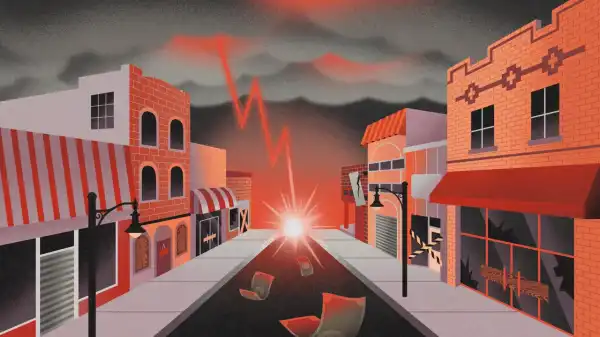
Save this storySave this storySave this storySave this story
On April 9, Luke Marion, a gardener and seed supplier who runs the YouTube channel MIgardener, released a video suggesting specific plants for a “RECESSION-PROOF Garden.” “We’re going to discuss twenty-one varieties you should add to your garden to help combat the coming recession,” Marion says somberly, holding a rake over a flower bed in his yard. He adds, “The time to learn to swim is not when you’re swept out to sea.” Among the vegetables he recommends are garlic, cabbage, tomatoes, and kale—produce that will help lower your food bill if you grow them yourself. Marion’s video, which has garnered more than eighty thousand views, comes amid President Trump’s sweeping global tariff announcements, which headlines predicted would lead to said recession. Marion wasn’t the only one offering agricultural solutions: “Having a vegetable garden can help cushion the effects of a recession,” another gardener advised on YouTube last week. Others suggested harvesting nettles as “recession prep” or creating a “hydroponic and aquaponic garden for survival.”
Oddly, the signs of a recession are already in sight. Hairdressers report that their clients are opting for less expensive treatments. “I’m out of their budget,” one esthetician told Bloomberg. Young people are opening home cafes, making cappuccinos and iced matcha instead of going to coffee shops. (Coffee prices are rising because of the new tariffs, and cafes are raising theirs in turn.) In Washington, D.C., and other parts of the country, law school applications are soaring, a classic sign that previously free-spirited young people are looking for more secure jobs. Georgetown University reported a 25 percent increase in applicants. Even if investors have become somewhat more confident this week after Trump repealed most of his most restrictive tariffs, lifestyle changes serve as an affective barometer. Sentiment is low; Americans are panicked and confused. In their clouded minds, any unusual consumer behavior or trend seems like a harbinger of impending collapse.
On social media, the term “recession indicators” has become a meme. The closure of a Dunkin’ in downtown Boston, the chain’s home state, is taken as a recession indicator. So is Leslie Odom Jr. reprising his original role in “Hamilton,” an undeniably lucrative gig. So are Coachella 2025 ticket buyers going into debt with payment plans to afford admission. Other recession indicators make sardonic references to the 2008 financial crisis: a new album by DJ and producer Skrillex, a fixture of recessionary dance music; the return of the flash mob, an example of which was recently spotted in Los Angeles celebrating the release of a single by rapper Doechii; and a renewed interest in “American Idol,” the pinnacle of Y2K kitsch. (This season is better than ever, according to my parents.) Fresh music from OK Go and Bon Iver, which also launched a canned fish joint under the direct-to-consumer brand Fishwife, is a throwback, as is “The Pitt,” the latest hit streaming show, a hospital drama starring the Noah Wyle of “ER” fame. Returning to familiar entertainment can be a variation on the “hemline index,” in which skirts are supposed to get shorter in good times and longer in bad.
Bon Iver certainly didn’t set out to release an album in the context of Trump’s tariff plans. Most of these metrics are meant as jokes, but like many internet memes, they hint at a shared psychological state that’s confirmed by every like and share. Can a recession trigger a sense of nostalgia, evoking memories of a previous financial crisis, when the economy and labor force were severely battered but at least the international democratic coalition didn’t seem so shaky? For millennials who entered adulthood around 2008, the current climate of pessimism evokes a kind of déjà vu. My classmates graduated college facing a devastated job market, desperately seeking internships that probably wouldn’t pay, and contemplating part-time jobs at bars or coffee shops. At the time, there was a certain faint satisfaction among youth culture that it glamorized lo-fi grit: wearing plaid, drinking draft beer from glass cans, posting Instagram photos of dive bars with heavy filters smoothing out any visual imperfections. In retrospect, there was a clarity to the Great Recession that is missing in our time. Now we face a deluge of AI sludge and disinformation, with fewer strong media institutions to provide a sense of authority and a barely shared understanding of our political realities. We are more aware
Sourse: newyorker.com